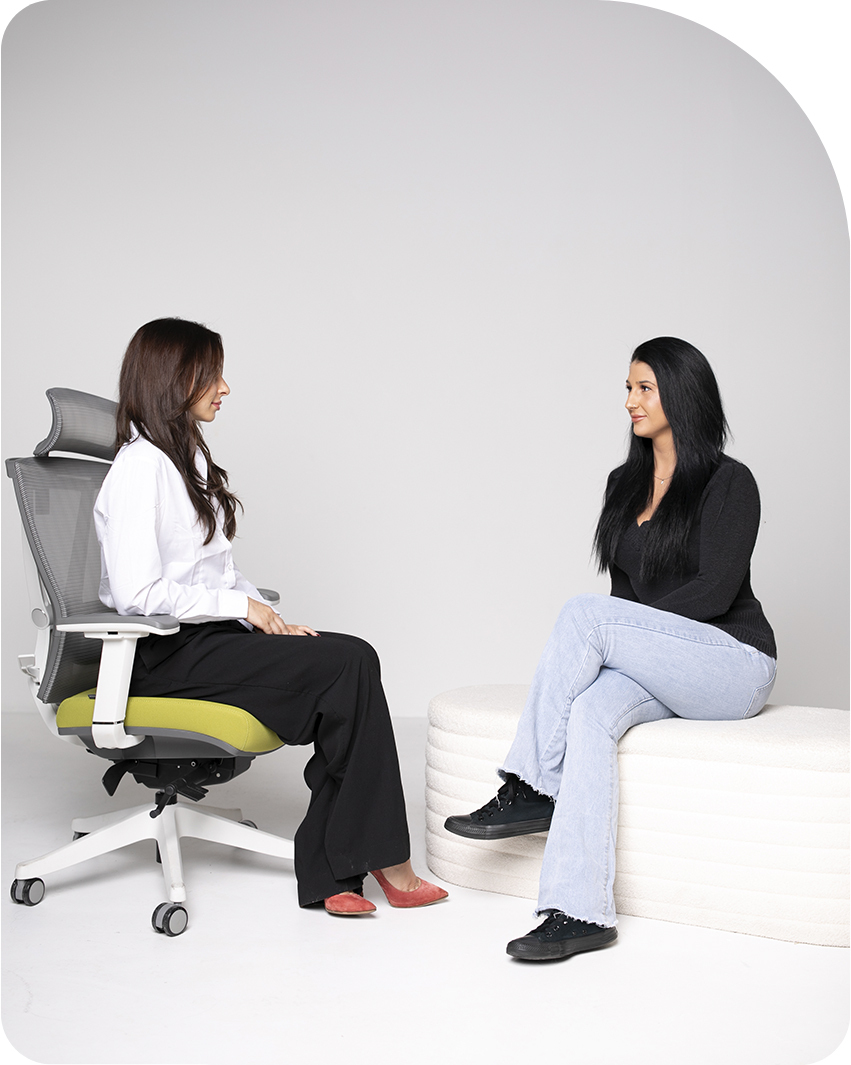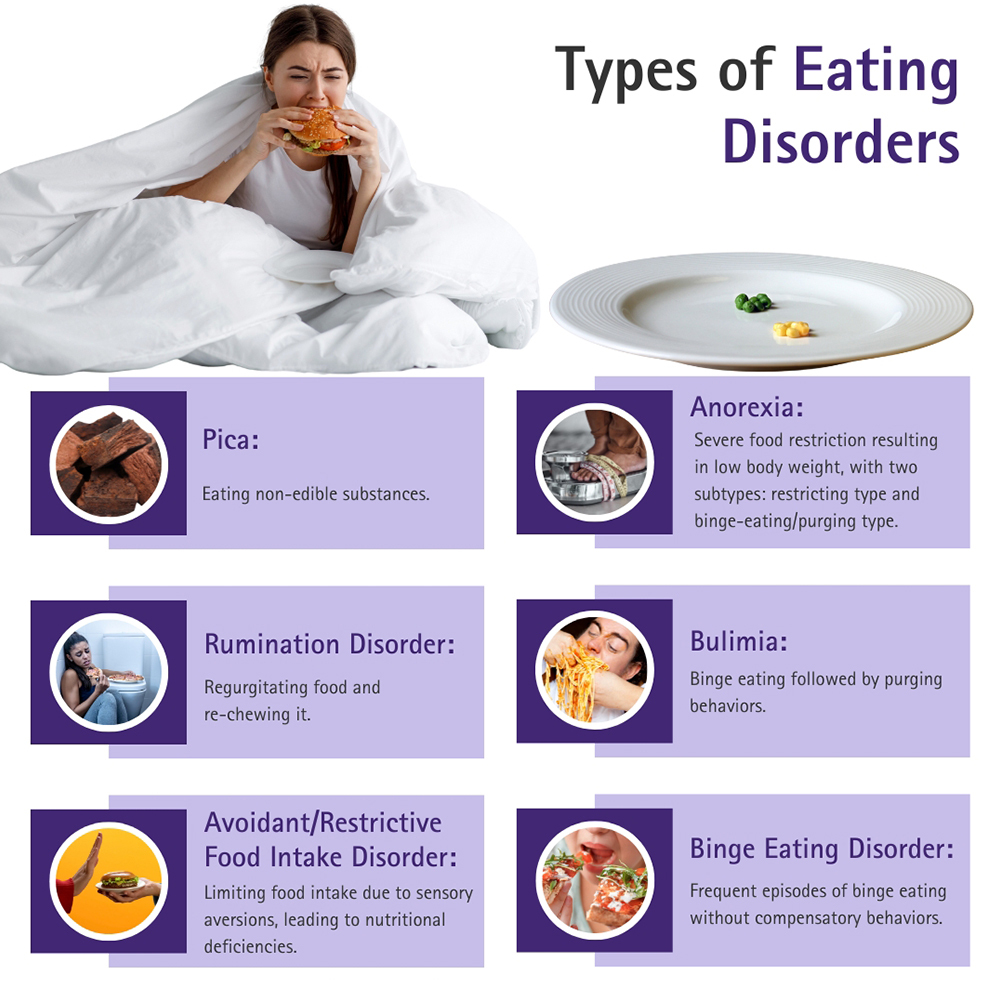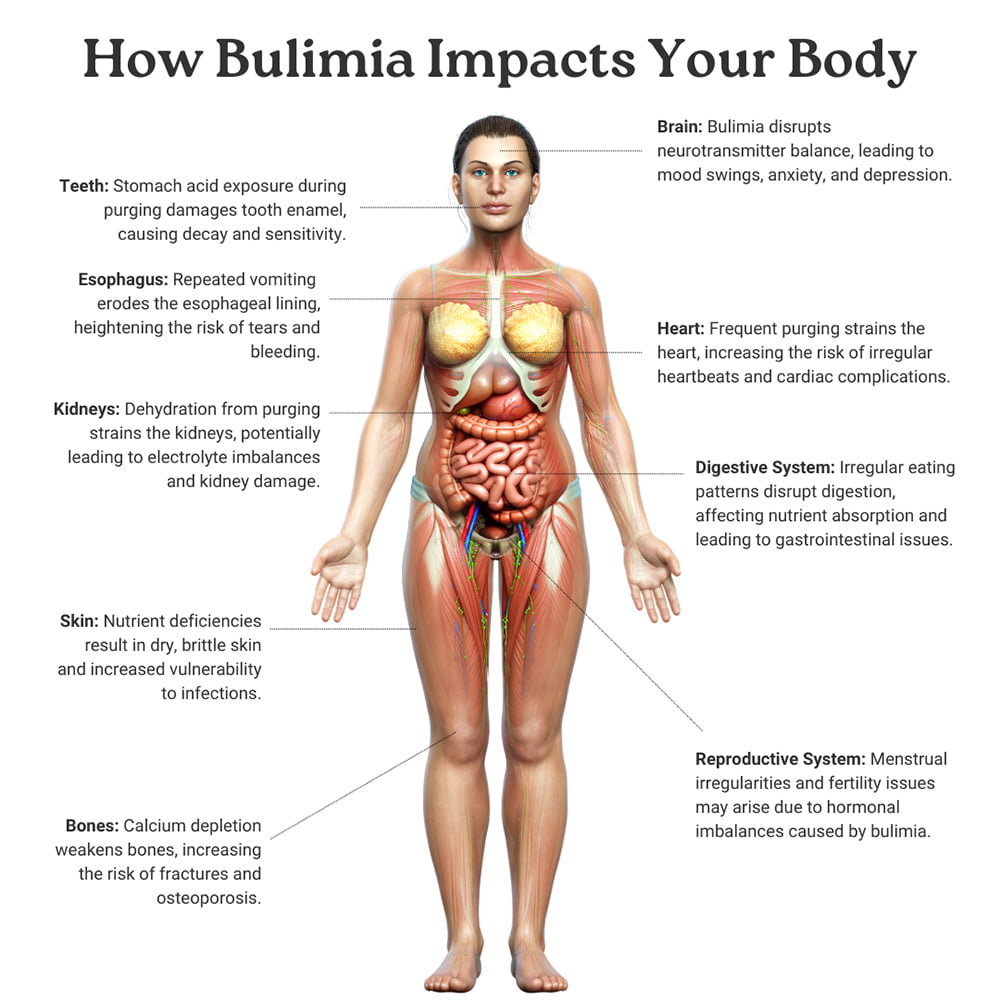Understanding ED

Eating disorders (ED) are serious mental health illnesses that are characterized by a disturbance of eating patterns that results in impairment of physical health.
Eating disorders include:
- Pica: Eating non-edible substances
- Rumination Disorder: Regurgitation of food
- Avoidant/Restrictive Food Intake Disorder: Restriction of food, usually caused by the sensory experience of foods that leads to nutritional deficit
- Anorexia: Restriction of food leads to low body weight, along with a disturbance of how one’s body shape is experienced. There are two subtypes of anorexia, including the restricting type and binge eating/purging type.
- Bulimia: Recurrent episodes of binge eating followed by purging
- Binge Eating Disorder: Recurrent episodes of binge eating
If you believe you may have an ED, it is important to seek professional help. Eating disorders are treatable. We care about your well-being and are here to help. We offer sessions across Palm Beach County and virtually to provide you with the most convenient support possible.

Signs and Symptoms
Some common signs and symptoms include:
- Rapid weight change
- Secrecy surrounding eating habits
- Hair loss
- Frequent trips to the bathroom, especially after eating
- Dry skin, hair, or brittle nails
- Mood swings or irritability
- Substance use (substance abuse)
These are some common signs. Not all of these signs may be present.
Impact
Some impacts of eating disorders include:
- Malnutrition
- Gastrointestinal issues
- Low self-esteem
- Depression
- Strained relationships
- Guilt and fear
- Low blood pressure
- Hormonal imbalances
The impact may vary depending on the type of eating disorder.
The Importance of Professional Help
Treatment Options in Palm Beach
Treatment for ED can involve individual, family, or group therapy. Different levels of care include residential programs, partial hospitalization programs (PHP), intensive outpatient (IOP), or outpatient (OP) treatment. At the Trauma Therapy Center, we offer outpatient treatment in the form of counseling.
The treatment of eating disorders is triadic. The three important aspects of eating disorders include:
- Therapy– This is the most effective and important aspect of treating an eating disorder. Eating disorders are considered a mental illness. Therefore, eating disorder treatment can help you identify the underlying cause of your disorder and develop skills to improve your relationship with food. Counseling at the Trauma Therapy Center is safe and confidential.
- Medication– In some cases, medication in combination with mental health counseling can be helpful. Medications can be used to treat co-occurring disorders such as depression and anxiety or to treat symptoms such as binging or purging. The decision to start or discontinue medication should be made with your healthcare provider.
- Nutritional counseling—Creating a realistic nutritional plan that can be incorporated into your lifestyle and is well tolerated can help with an eating disorder. You can also utilize supportive resources such as the National Association of Anorexia Nervosa and Associated Disorders (ANAD) and the Eating Disorders Association of America (EDAA).
The type of treatment will depend on the type and severity of the eating disorder. Remember, you are not alone. Effective eating disorder treatments are available.
For more information about our counselors or to schedule an appointment with an eating disorder therapist, call the therapy center.
(561) 363-7994Types of Psychotherapy
The most effective types of psychotherapy for treating eating disorders include:
- Cognitive behavioral therapy (CBT): CBT can help you identify and change negative thoughts and beliefs that lead to mental health conditions. You will also be able to change unwanted behaviors and learn to cope and overcome cravings.
- Interpersonal psychotherapy (IPT): IPT is a strongly supported evidence-based treatment for bulimia. IPT focuses on the relationship between the eating disorder and interpersonal relationships. With IPT you can have improved relationships with food, people, and your mood.
- Dialectical behavior therapy (DBT): DBT can help you learn to manage emotions that may lead to self-harming behaviors.
- Motivational interviewing (MI): MI can help you identify your reasons for change and help you take action.
There are many therapies proven to be effective in improving mental health and ED symptoms. Eating disorders are treatable, and you can find relief in Palm Beach.

Family-Based Therapy
Current published clinical guidelines recommend an ED-specific family therapy as the first-line treatment of adolescents with anorexia nervosa (AN) and as a recommended treatment of adolescents with bulimia nervosa, according to a recent study published on PubMed. Family counseling involves as many family members as possible in the treatment process.
During counseling, a mental health professional helps the family unit identify the underlying causes of the disordered eating and create a plan to combat the symptoms.
Family therapy can help clients with ED and their families:
- Improve communication and support
- Reduce ED symptoms
- Improve family relationships and communication
- Improve the quality of life
Family counseling is a safe and effective treatment for ED that can help you and your family can live healthy and fulfilling lives.
Medications
Medications are not the first line of treatment for eating disorders. However, at times, they may be helpful in conjunction with a counseling treatment program.
Typically, the most effective medication for eating disorders is anti-depressants, such as fluoxetine (Prozac) or sertraline (Zoloft).
Other medications, such as antipsychotics and mood stabilizers, have also been shown to help in the treatment of eating disorders.
Eating Disorder Therapy Duration
The amount of time it takes to see results from eating disorder treatment depends on the person. For some people, meeting with a mental health professional and receiving psychoeducation on their disorder is relieving. For others, it may take time and practice of the skills learned in their treatment program to feel better.
It is possible to fully recover from an eating disorder. Our licensed mental health professionals specialize in evidence-based therapies for ED, including CBT, DBT, and family therapy, and have extensive experience treating eating disorders. With the right support, you can overcome your disordered eating.
Your therapist will support you every step of the way.
Lifestyle Changes to Manage Symptoms
Some lifestyle changes that can help manage mental health and an eating disorder include:
- Eating regular meals and snacks
- Managing stress
- Utilizing coping skills
- Getting enough sleep
- Maintaining a healthy regular diet
Together with your therapist, you can work on lifestyle changes that work and benefit you.
If you’re ready to start your personal recovery journey, contact us today to schedule a free consultation. We’ll work with you to create a treatment plan that’s right for you and help you achieve your recovery goals. We offer therapy virtually or in person in West Palm Beach, FL.

